2018年4月19日(Thu.) 今日の気温は26℃ぐらいまで上昇、さらに今週末は30℃になるとの予報も出されています。 これは従来に比べれば異常なことと認識すべきではないでしょうか。(愛知県平野部)
さて、ゴミ問題はデンマークでも物議を醸しているようです、 ( ニュースソース: THE LOCAL.dk 4月18日発 )
<原文の一部>
Swans make nests from litter in Copenhagen lakes
コペンハーゲンの湖で、白鳥はゴミから巣を作っています。
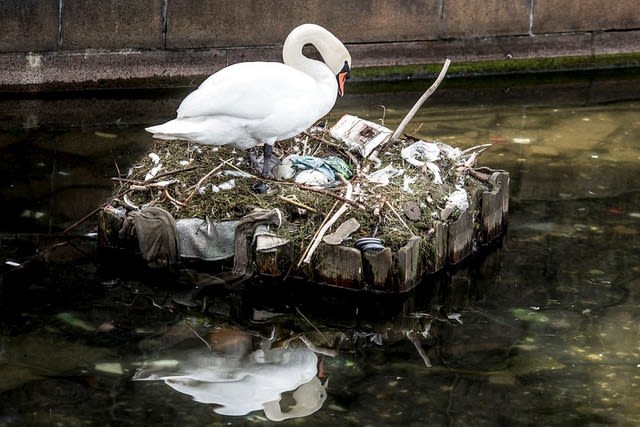
Photo: Mads Claus Rasmussen/Ritzau Scanpix
Swan nests made from rubbish have again appeared on Copenhagen’s lakes, sparking debate about littering in the Danish capital.
コペンハーゲン(CPH)の湖で、白鳥がゴミから巣を作っていることが再び確認されていて、デンマークの首都におけるゴミ問題に議論が巻き起こっています。(一部、意訳)
The swans' nests can be seen to partly consist of litter likely thrown from popular bridge Dronning Louises Bro, which connects the Inner City and Nørrebro areas, TV2 reports.
A similar issue with the swans’ nests was a talking point for conservationists in Copenhagen in 2017.
The rubbish can be a serious danger to the swans as well as to other animals, the Danish Society for Nature Conservation said.
(抜粋)白鳥の巣は、部分的にゴミから出来ているように見えており、これは恐らく人気の橋である Dronning Louises Bro から投げ込まれたものと考えられます。 ここからは市内や Nørrebro areas につながっているのです(水路)。
この白鳥の巣の類似問題は2017年もCPHの保護論者から指摘されています。 ゴミは他の動物と同様に白鳥にも深刻な危険をもたらすと、デンマークの自然保護団体が述べています。
“The problem is things like plastic, which are not degradable. If the animals eat it, they risk being killed by it. They are also at risk of becoming tangled up in it, and it is strong material, so that can also kill them,” the society’s president Maria Reumert Gjerding told TV2.
Plastic is particularly dangerous because animals can confuse it with organic materials, Gjerding added.
“We are very concerned. Natural material is broken down and breaks more easily when eaten by animals – but not with plastic, which animals can easily mix up [with natural material]. They think it’s natural, but it isn’t,” she said.
(抜粋)問題はプラスティックで、これは分解されません。 もし動物がこれを食べると、死ぬ恐れがあります。 また、これにもつれてしまうリスクもあり、これは強い素材で、死に至る可能性もありますと団体の会長が語っています。
プラスティックは特に危険であり、何故なら、動物は有機物質と間違えてしまうからです。
私達はとても懸念しています。 自然の物質は動物に食べられても容易に分解されますが、プラスティックはそうは行きませんし、動物は間違えて食べてしまい易いからですとも述べています。
“That’s why it’s so important for us to remove plastic from natural areas, and not litter with it, but rather take it to where it can be recycled,” Gjerding urged.
The Danish Society for Nature Conservation’s week-long annual litter collection began on Monday, with 141,000 children across the country spending the week collecting litter, TV2 reports.
Last year, 110,000 cans and 155,000 kilograms of litter were collected from natural areas during the initiative.
(抜粋)なので、自然の場所からプラスティックを除去することが重要なのです。 また、プラスチックのゴミを散らかさないことと、リサイクルにもって行くことが望まれます。
デンマーク自然保護協会の恒例行事であるゴミ収集週間が月曜日から始まりました。 141,000人の国中の子供たちがこの1週間にゴミ収集をします。
昨年(2017年)は、110,000の缶と155,000kgのゴミが自然地区から集められました。
***
デンマークでも、こうした問題を抱えているようです。 しかし、子供達に参加してもらうことで、ゴミ問題や自然保護の大切さを身に着けてもらおうとしているのでしょう。
こうした活動の背景にも、クォータ制(割当制)による、女性視点の考えも生かされているのではないかと思います(想像ですが)。
*
日本における議員に占める女性の割合は低い方でしょうし、加えて、古い因習を伝統と間違えて続けている国技団体もあるくらいですから、子供のころから何が大切かを伝えて行きたいものです。
但し、その教える側の文科省も極右政権や国家主義的な流れに埋没していたとすると、そうした前向きな取り組みにも懸念が湧いてしまいますが、杞憂でしょうか。
*** 下の写真は、記事内容とは関係ありません。

***
さて、ゴミ問題はデンマークでも物議を醸しているようです、 ( ニュースソース: THE LOCAL.dk 4月18日発 )
<原文の一部>
Swans make nests from litter in Copenhagen lakes
コペンハーゲンの湖で、白鳥はゴミから巣を作っています。

Photo: Mads Claus Rasmussen/Ritzau Scanpix
Swan nests made from rubbish have again appeared on Copenhagen’s lakes, sparking debate about littering in the Danish capital.
コペンハーゲン(CPH)の湖で、白鳥がゴミから巣を作っていることが再び確認されていて、デンマークの首都におけるゴミ問題に議論が巻き起こっています。(一部、意訳)
The swans' nests can be seen to partly consist of litter likely thrown from popular bridge Dronning Louises Bro, which connects the Inner City and Nørrebro areas, TV2 reports.
A similar issue with the swans’ nests was a talking point for conservationists in Copenhagen in 2017.
The rubbish can be a serious danger to the swans as well as to other animals, the Danish Society for Nature Conservation said.
(抜粋)白鳥の巣は、部分的にゴミから出来ているように見えており、これは恐らく人気の橋である Dronning Louises Bro から投げ込まれたものと考えられます。 ここからは市内や Nørrebro areas につながっているのです(水路)。
この白鳥の巣の類似問題は2017年もCPHの保護論者から指摘されています。 ゴミは他の動物と同様に白鳥にも深刻な危険をもたらすと、デンマークの自然保護団体が述べています。
“The problem is things like plastic, which are not degradable. If the animals eat it, they risk being killed by it. They are also at risk of becoming tangled up in it, and it is strong material, so that can also kill them,” the society’s president Maria Reumert Gjerding told TV2.
Plastic is particularly dangerous because animals can confuse it with organic materials, Gjerding added.
“We are very concerned. Natural material is broken down and breaks more easily when eaten by animals – but not with plastic, which animals can easily mix up [with natural material]. They think it’s natural, but it isn’t,” she said.
(抜粋)問題はプラスティックで、これは分解されません。 もし動物がこれを食べると、死ぬ恐れがあります。 また、これにもつれてしまうリスクもあり、これは強い素材で、死に至る可能性もありますと団体の会長が語っています。
プラスティックは特に危険であり、何故なら、動物は有機物質と間違えてしまうからです。
私達はとても懸念しています。 自然の物質は動物に食べられても容易に分解されますが、プラスティックはそうは行きませんし、動物は間違えて食べてしまい易いからですとも述べています。
“That’s why it’s so important for us to remove plastic from natural areas, and not litter with it, but rather take it to where it can be recycled,” Gjerding urged.
The Danish Society for Nature Conservation’s week-long annual litter collection began on Monday, with 141,000 children across the country spending the week collecting litter, TV2 reports.
Last year, 110,000 cans and 155,000 kilograms of litter were collected from natural areas during the initiative.
(抜粋)なので、自然の場所からプラスティックを除去することが重要なのです。 また、プラスチックのゴミを散らかさないことと、リサイクルにもって行くことが望まれます。
デンマーク自然保護協会の恒例行事であるゴミ収集週間が月曜日から始まりました。 141,000人の国中の子供たちがこの1週間にゴミ収集をします。
昨年(2017年)は、110,000の缶と155,000kgのゴミが自然地区から集められました。
***
デンマークでも、こうした問題を抱えているようです。 しかし、子供達に参加してもらうことで、ゴミ問題や自然保護の大切さを身に着けてもらおうとしているのでしょう。
こうした活動の背景にも、クォータ制(割当制)による、女性視点の考えも生かされているのではないかと思います(想像ですが)。
*
日本における議員に占める女性の割合は低い方でしょうし、加えて、古い因習を伝統と間違えて続けている国技団体もあるくらいですから、子供のころから何が大切かを伝えて行きたいものです。
但し、その教える側の文科省も極右政権や国家主義的な流れに埋没していたとすると、そうした前向きな取り組みにも懸念が湧いてしまいますが、杞憂でしょうか。
*** 下の写真は、記事内容とは関係ありません。

***










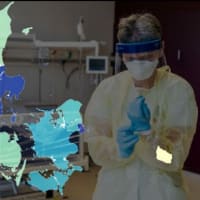
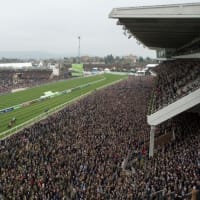

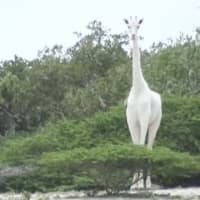
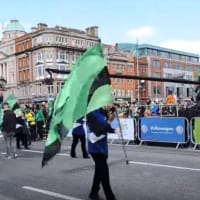
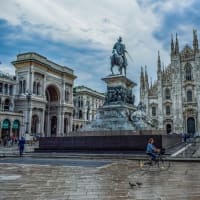
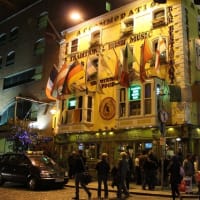
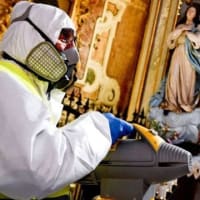
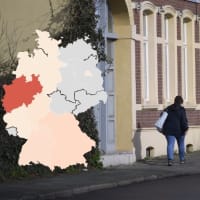
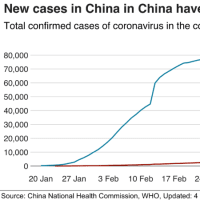
※コメント投稿者のブログIDはブログ作成者のみに通知されます